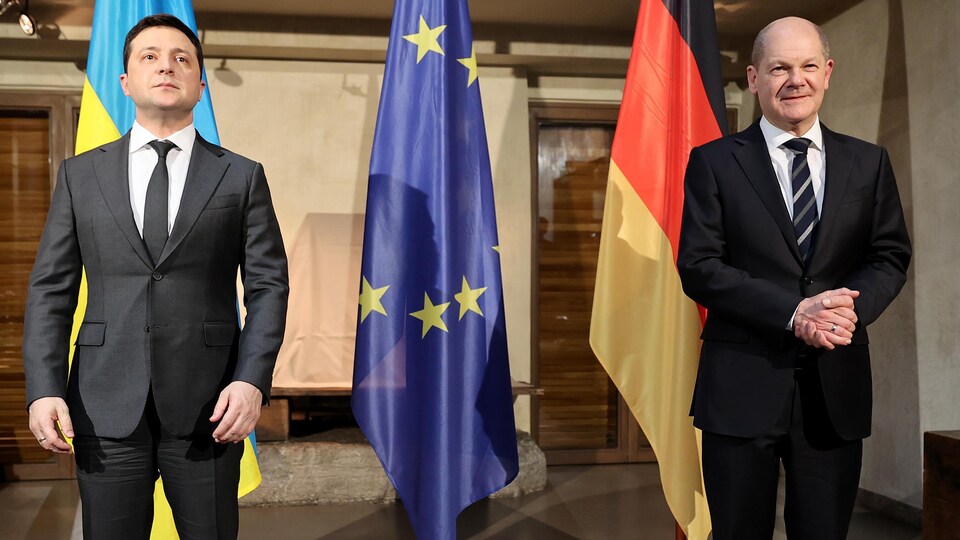Germany will “soon” decide whether to approve the delivery of 100 used Marder infantry fighting vehicles to Ukraine, following a request from German arms manufacturer Rheinmetall, a government spokesman said Monday. A green light will pave the way for the first delivery of German heavy weapons to Ukraine.
Reuters reported on Monday, on the strength of a source in the defense sector, that Rheinmetall had applied for permission to export these vehicles to Ukraine, confirming information from the Daily. World on Sunday.
The company, however, reportedly plans to return the vehicles in the coming months before sending them to Ukraine, according to Reuters.
Rheinmetall has also requested permission to export 88 old Leopard 1A5 tanks, the German daily reported. die world.
The company declined to comment, while a German government spokesman said a decision would be made soon taken at it.
The request requires the approval of the National Security Council, headed by the head of government, Chancellor Olaf Scholz, which will then be called upon to clarify its position on the delivery of heavy weapons to Ukrainian forces.
Mr. Scholz has been widely criticized, in Germany and abroad, for his reluctance to deliver heavy weapons to Ukraine to help counter the Russian offensive.
In comparison, many other member countries ofNATOsuch as the United States, United Kingdom, France, Czech Republic and the Netherlands, have already begun to deliver this type of weapon or have promised to do so.
Ukraine has increasingly insisted on Western countries supplying it with heavy weapons since the Russian army shifted its military strategy towards occupying the Donbass region in the east of the country.
Due to its geography, this territory is considered more conducive to tank combat than the areas closer to the capital.
The weekly Swiss Sunday Week a further reported that Switzerland had rejected two requests from Germany to re-export Swiss-made ammunition to Kyiv, on behalf of neutrality of the country and the War Materials Act, which restricts the export of military material to conflict zones.
The outlet did not specify whether the requests were related to Marder vehicles, but according to Washington Postthese infantry fighting vehicles, although made in Germany, use Swiss ammunition.
A big turnaround
Unlike some countries, Germany did not supply arms to Ukraine prior to the invasion of Russia on February 24 and even prevented other countries from sending military equipment of German origin, due to a long-standing policy associated with the past. its.
Since World War II, the country’s official position has been not to export weapons to war zones.
Shortly after the start of the Russian offensive, however, it began to allow weapons to be presented as defensive, thus bringing about a major political change.
Last week, German Defense Minister Christine Lambrecht announced that Kyiv would “in the coming days” receive heavy weapons, including combat tanks and armored vehicles, from partners in Eastern Europe.
Olaf Scholz promised to help Eastern European allies deliver Soviet -made weapons to kyiv by exchanging equipment they would provide.
Minister Lambrecht also confirmed last week that Germany would train Ukrainian soldiers to use the Panzerhaubitze 2000-type armored howitzer.
However, Germany said it would no longer capture the reserves of the Bundeswehr – the German army – otherwise it could no longer guarantee or its promises toNATO or the defense of its own territory.
The country has not only been the target of criticism for its reluctance to provide heavy weapons to Ukraine, but also for its refusal to impose an embargo on Russia’s gas, on which it relies heavily.
Source: Radio-Canada
